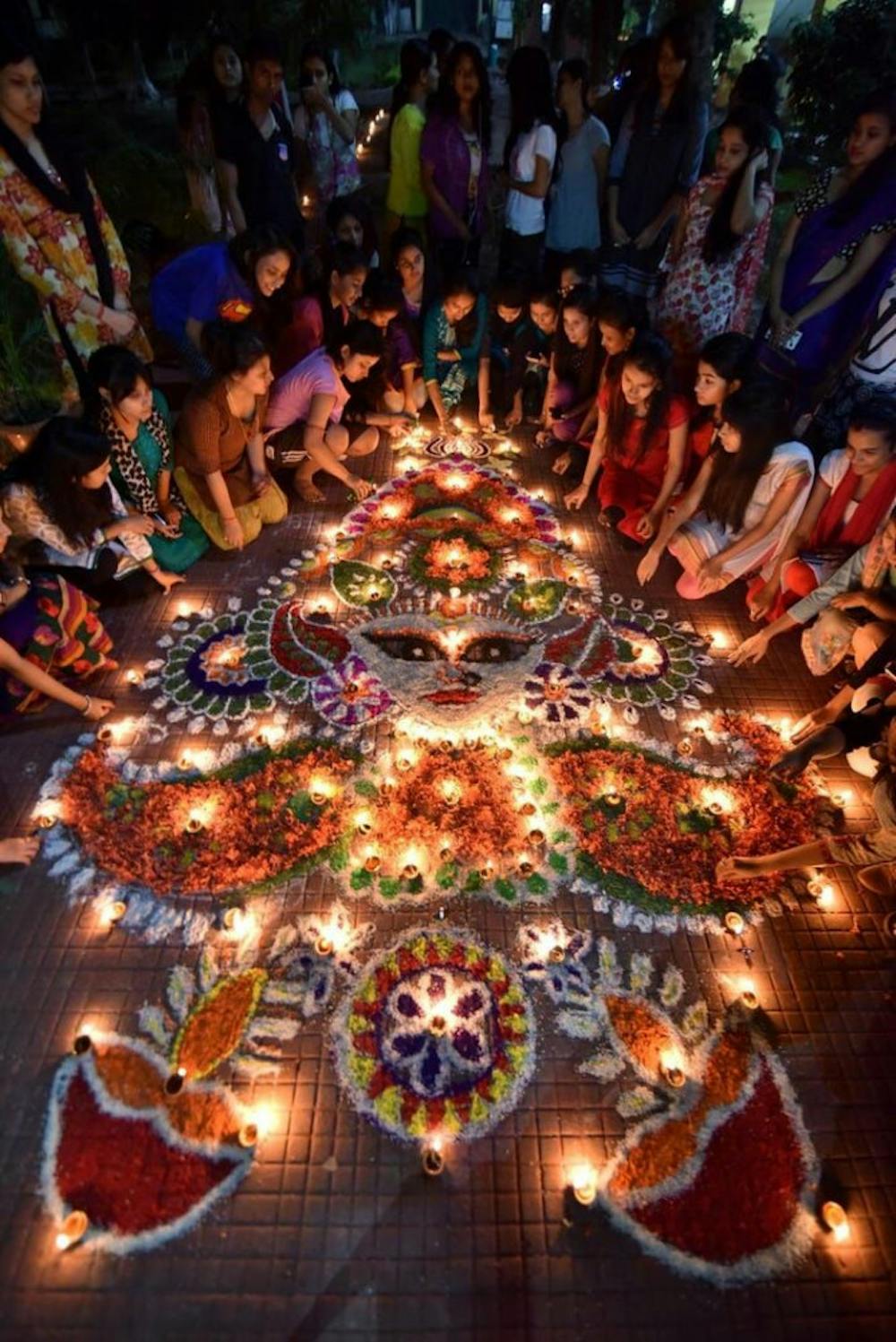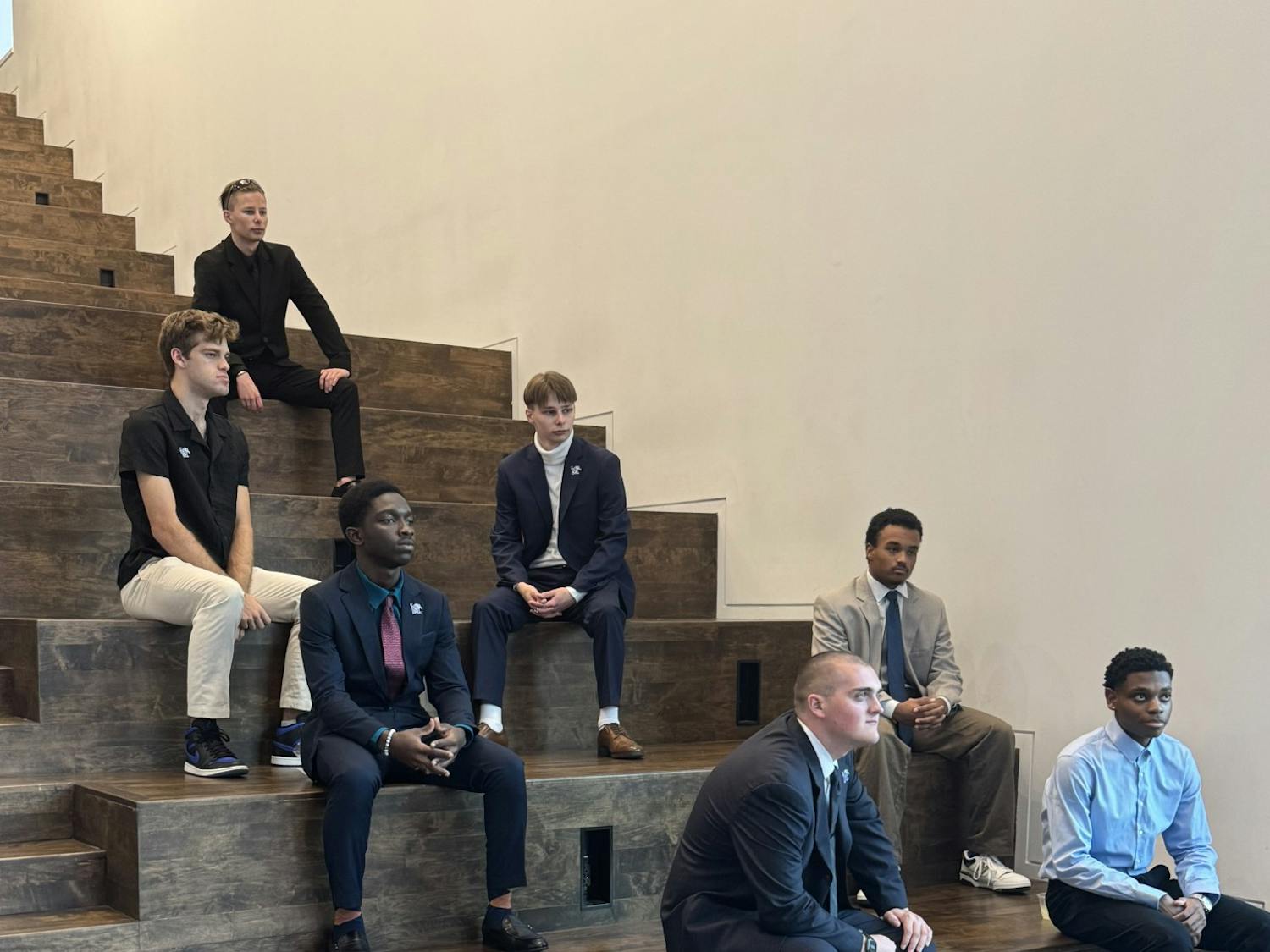Thousands of years ago, candles lined the streets of the ancient Indian city, Ayodhya. Fireworks burst through the air celebrating the return of King Rama and marking the first Diwali celebration. For 14 years Rama, one of the incarnations of the god Vishnu, had been in exile. During that time, his wife was kidnapped by King of the Demons, Ravana. After a long and strenuous battle, Rama defeated Ravana and returned home.
Rama’s triumph over Ravana is just one of the stories behind why Diwali is celebrated. And while the stories vary from region to region, Diwali is ultimately a holiday celebrating the triumph of good over evil. With the help of the Indian Student Association and the Office of Multicultural Affairs at the University of Memphis, Harika Vuppalapati, a junior biomedical engineering major and vice president of the ISA, is hosting a Diwali celebration in the UC Ballroom Wednesday, Nov. 10 at 7 p.m.
“Many of the students on campus have shown so much excitement for Diwali and once they moved here from India, they couldn't celebrate like normal,” she said.
With five days of festivities, Diwali is one of the major Indian holidays. It serves as a time to pray, remember, and reflect on life and its gift. In celebration, everyone gives each other gifts and eats big meals together while spending time with family.
The holiday occurs during the holy month of Kartik, which usually falls between the middle of October and lasts until the beginning of November, because of the lunar model of the Hindu calendar. People gather and light candles because Diwali “celebrates the festival of lights,” Vuppalapati explained.
“It represents the triumph of good over evil and shows people that there is good in life,” she said.
During the five days that the holiday lasts, women traditionally dress in sarees while men dress in kurtas and dhotis. They also eat traditional Indian dishes like Mithai which translates to sweets.
Because of how busy college students can get and the distance they are from family, the celebrations can often feel different for many students. The ISA’s Diwali event is a way to bring a more traditional experience closer to students.
“I decided to celebrate and host this event for students on and off campus for those who wanted to learn more about Diwali—one of our major holidays. This event will also bring people together who feel like they are ''losing'' some traditions,” Vuppalapati said.
She recounted her love for Diwali and said that the event fulfills her own desire to feel connected to her community.
“With the majority of my family living in India, it gives me a sense of connection. It’s something I can relate to with the people in India because they do the same exact things over there that we do here,” she said
The event will feature traditional Indian dishes and there will be a dance performance. Other activities include origami and games with prizes for the winner.
“In life itself, we tend to always think of the bad and stressful situations so it’s always good to think about the good that’s happening around us.”
All University of Memphis students are invited to participate, whether they observe the holiday or simply want to learn more about Indian culture.
Photo: BIJU BORO/AFP/Getty Images)





